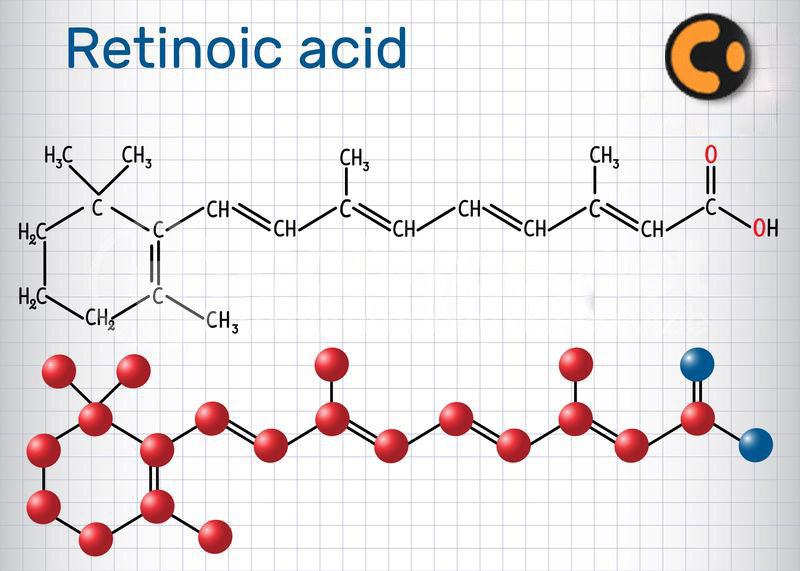Effects of dietary fat and fiber on plasma and urine androgens and estrogens in men: a controlled feeding study.
Author: Dorgan JF, Judd JT, Longcope C, Brown C, Schatzkin A, Clevidence BA, Campbell WS, Nair PP, Franz C, Kahle L, Taylor PR. – Division of Cancer Prevention and Control, National Cancer Institute, Bethesda, MD 20892-7326, USA.
Am J Clin Nutr. 1996 Dec; 64(6): 850-5.
We conducted a controlled feeding study to evaluate the effects of fat and fiber consumption on plasma and urine sex hormones in men. The study had a crossover design and included 43 healthy men aged 19-56 y. Men were initially randomly assigned to either a low-fat, high-fiber or high-fat, low-fiber diet for 10 wk and after a 2-wk washout period crossed over to the other diet. The energy content of diets was varied to maintain constant body weight but averaged approximately 13.3 MJ (3170 kcal)/d on both diets. The low-fat diet provided 18.8% of energy from fat with a ratio of polyunsaturated to saturated fat (P:S) of 1.3, whereas the high-fat diet provided 41.0% of energy from fat with a P:S of 0.6. Total dietary fiber consumption from the low- and high-fat diets averaged 4.6 and 2.0 g.MJ-1.d-1, respectively. Mean plasma concentrations of total and sex-hormone-binding-globulin (SHBG)-bound testosterone were 13% and 15% higher, respectively, on the high-fat, low-fiber diet and the difference from the low-fat, high-fiber diet was significant for the SHBG-bound fraction (P = 0.04). Men’s daily urinary excretion of testosterone also was 13% higher with the high-fat, low-fiber diet than with the low-fat, high-fiber diet (P = 0.01). Conversely, their urinary excretion of estradiol and estrone and their 2-hydroxy metabolites were 12-28% lower with the high-fat, low-fiber diet (P < or = 0.01).
Results of this study suggest that diet may alter endogenous sex hormone metabolism in men.
Testosterone, sex hormone-binding globulin, calculated free testosterone, and oestradiol in male vegans and omnivores.
Author: Key TJ, Roe L, Thorogood M, Moore JW, Clark GM, Wang DY. – Cancer Epidemiology Unit, Imperial Cancer Research Fund, Radcliffe Infirmary, Oxford.
Br J Nutr. 1990 Jul; 64(1): 111-9.
Total testosterone (T), total oestradiol (E2) and sex hormone-binding globulin (SHBG) concentrations were measured in plasma samples from fifty-one male vegans and fifty-seven omnivores of similar age. Free T concentration was estimated by calculation. In comparison with the omnivores, the vegans had 7% higher total T (P = 0.250), 23% higher SHBG (P = 0.001), 3% lower free T (P = 0.580), and 11% higher E2 (P = 0.194). In a subset of eighteen vegans and twenty-two omnivores for whom 4 d diet records were available, there were statistically significant correlations between T and polyunsaturated fatty acids (r 0.37), SHBG and fat (r 0.43 for total fat, 0.46 for saturated fatty acids and 0.33 for polyunsaturated fatty acids), and SHBG and alcohol (r-0.39). It is concluded that a vegan diet causes a substantial increase in SHBG but has little effect on total or free T or on E2.
Effects of a fat-containing meal on sex hormones in men.
Author: Meikle AW, Stringham JD, Woodward MG, McMurry MP. – Department of Internal Medicine, University of Utah School of Medicine, Salt Lake City.
Metabolism. 1990 Sep; 39(9): 943-6.
The effect of a fat-containing meal on plasma sex steroid concentrations was investigated in normal men. After an overnight fast on two separate occasions, subjects ingested a liquid meal containing either a nonnutritive sweetener (control), or isocaloric meals of mixed calorie sources with either high-fat content or mixed carbohydrate and protein with minimal fat. The order of the meals was alternated. Blood samples were collected at 15-minute intervals and pooled each hour. Sampling began at 7:00 AM and the test meal was ingested at 8:00 AM. Sex steroids, including estrone, estradiol, testosterone, and dihydrotestosterone (DHT), sex hormone-binding globulin (SHBG) capacity, free testosterone concentration, and luteinizing hormone (LH) were determined by either specific radioimmunoassay or dialysis. The fat-containing meal, but not the nonnutritive or mixed carbohydrate and protein meal, resulted in a significant (P less than .01) reduction in total and free testosterone. Estrogens and luteinizing hormone were unaffected by either meal. This is the first documentation, to our knowledge, of the acute effect of a fat-containing meal on sex steroid concentrations in blood. Our observations suggest that a fat-containing meal reduces testosterone concentrations without affecting luteinizing hormone. This might indicate that fatty acids modulate testosterone production by the testes.
PMID: 2392062 [PubMed – indexed for MEDLINE]
Diet and sex hormone-binding globulin.
Author: Longcope C, Feldman HA, McKinlay JB, Araujo AB. – University of Massachusetts Medical School, Worcester 01655, USA
Clin Endocrinol Metab. 2000 Jan; 85(1): 293-6.
The serum concentration of sex hormone-binding globulin (SHBG) is inversely related to weight and in animal studies is inversely related to protein intake. As SHBG can affect the biological activity of testosterone and estradiol, we wished to determine the role of protein intake on SHBG levels in men. Using data from the Massachusetts Male Aging Study we examined cross-sectional relationships between dietary components and SHBG levels in 1552 men (aged 40-70 yr) for whom these factors were known. Analyzed by multiple regression, controlling for testosterone and estradiol levels, age (P<0.001) and fiber intake (P = 0.02) were positively correlated to SHBG concentration, whereas body mass index (P<0.001) and protein intake (P<0.03) were negatively correlated to SHBG concentration. The intakes of calories, fat (animal or vegetable), and carbohydrate were not related to SHBG concentration. We conclude that age and body mass index are major determinants of SHBG concentrations in older men, and fiber and protein intake are also significant contributors to SHBG levels, but total caloric intake and the intake of carbohydrate or fat are not significant. Thus, diets low in protein in elderly men may lead to elevated SHBG levels and decreased testosterone bioactivity. The decrease in bioavailable testosterone can then result in declines in sexual function and muscle and red cell mass, and contribute to the loss of bone density.
Postprandial changes in sex hormones after meals of different composition.
Author: Habito RC, Ball MJ. – School of Biomedical Sciences, University of Tasmania, Launcastor, Australia.
Metabolism. 2001 May; 50(5): 505-11.
The postprandial effects of different meals on serum testosterone, serum sex hormone-binding globulin (SHBG), and free androgen index were sequentially evaluated in 15 healthy men. The isocaloric meals contained different proteins and different quantities and type of fat as a mixed meal. Four test meals were given to subjects in random order: a lean meat meal, a tofu meal (both containing approximately 20% energy from fat), and meat meals with added animal fat or safflower oil (both 54% energy from fat). Blood samples were obtained at baseline and at 2, 3, and 6 hours after each meal. There was a significant decrease in testosterone and free androgen index after both tofu and lean meat meals. The 2-hour serum testosterone and the decremental area under the curve were significantly more negative after the lean meat meal than the meat meal with added animal fat. The testosterone area under the curve was least for the high animal fat meal indicating little change from baseline. As men are postprandial for a significant proportion of the day, the lower sex hormone values after a low animal fat meal may provide long-term benefits in reducing the risk of diseases, such as prostate cancer, which appear to be sex hormone-dependent.

































